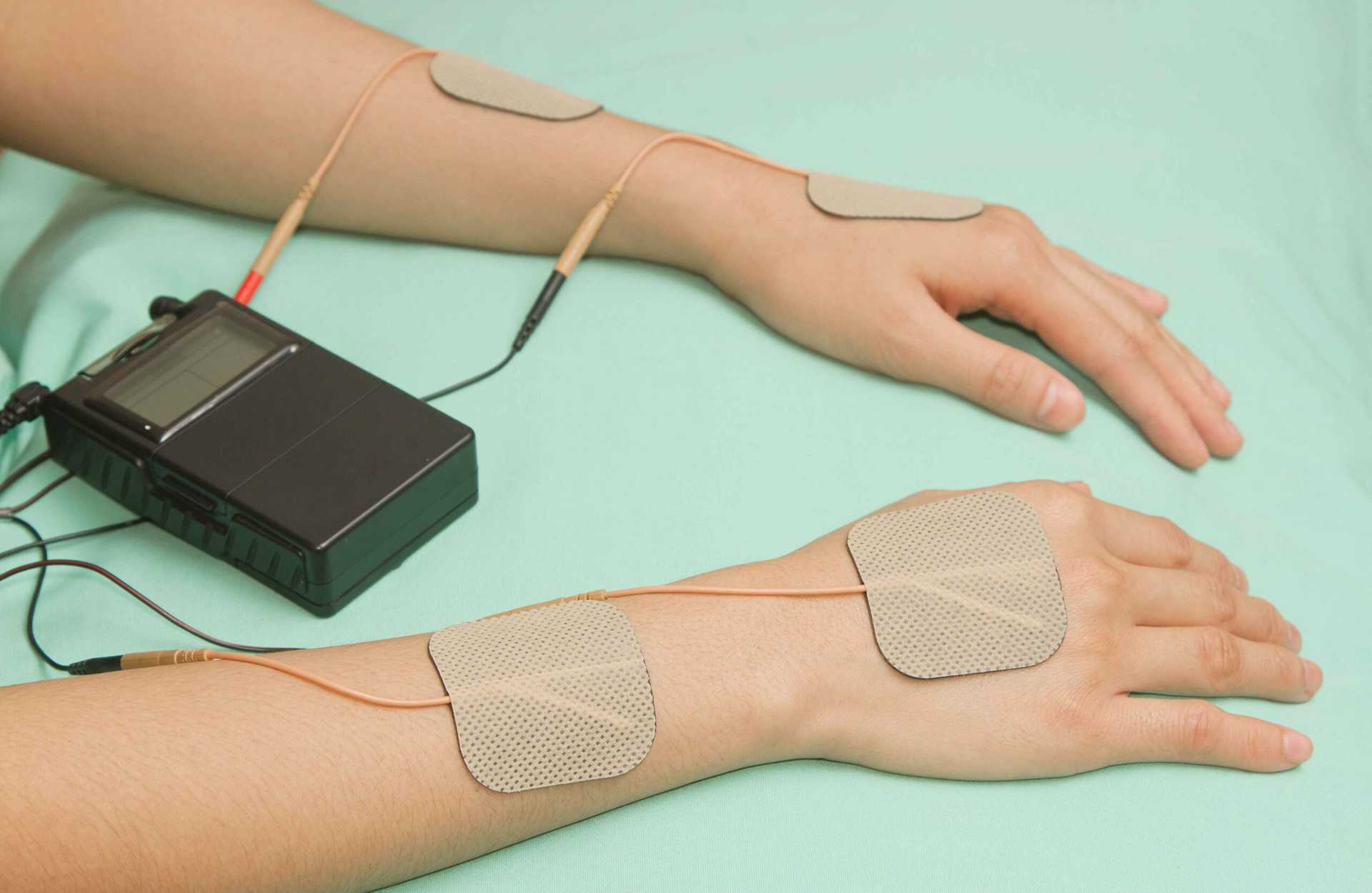
Expert Physiotherapy at Home
Certified physiotherapists visit you at home to provide focused, one-on-one care tailored to your needs. With no travel or waiting rooms, recovery happens in a setting that is comfortable, familiar, and built around your convenience.
Personalised Recovery Programmes
Every treatment plan is designed to suit your condition, goals, and pace. Our physiotherapists follow structured, evolving protocols to ensure consistent progress, with each session aligned to deliver meaningful results.
Trusted Physiotherapists. Real Results.
Our team comprises experienced, background-verified physiotherapists trusted by thousands of families. With a strong focus on safety, reliability, and clinical outcomes, we make recovery at home both effective and reassuring
Patient Testimonials
Portea Physiotherapists for Home Visits
Meet some of our experienced and dedicated healthcare professionals

Dr. Lokesh G
Physiotherapist
Specializations
Experienced in Neurological rehabilitation, Orthopaedic physiotherapy, and Paediatric care
Delivers structured, high-impact treatment plans across neuro, ortho, and paediatrics—ensuring safety, comfort, and measurable recovery at every stage.

Dr. Mohammed Sarwar
Physiotherapist
Specializations
Experienced in Neurological rehabilitation, Adult physiotherapy, and Paediatric care
Combines deep clinical expertise with a compassionate approach, supporting both adults and children through neuro and physical rehabilitation that promotes long-term independence and recovery.

Dr. Nelapati Divya
Physiotherapist
Specializations
Skilled in Orthopaedic rehabilitation, Manual therapy techniques, and Paediatric physiotherapy
Brings a personalised, hands-on approach to healing—combining structural expertise with paediatric sensitivity to restore movement, relieve pain, and improve everyday function.

Dr. Naveen V
Physiotherapist
Specializations
Trained in Pain management, Cardiac and Orthopaedic rehabilitation, Neurological care, and Neural tissue mobilisation
Brings clinical precision and empathy together—designing science-backed recovery protocols for pain relief, nerve mobilisation, and cardio-neuro-ortho rehabilitation across all age groups

Dr. Miloni Savla
Physiotherapist
Specializations
Holds an MPT in Orthopaedics with a focus on Musculoskeletal rehabilitation and strength recovery
Delivers focused, movement-oriented therapy grounded in orthopaedic science—helping patients rebuild strength, restore function, and return to daily life with confidence
Other Cities
Physiotherapy Treatments

understanding the role of tens in pain management
TENS physiotherapy works by delivering low-voltage electrical stimulation to nerves through skin-placed electrodes. This stimulation helps block pain signals from reaching the brain and can also trigger the release of natural pain-relieving chemicals like endorphins.
It is often prescribed for:
- Chronic pain – such as arthritis, fibromyalgia, or persistent back pain
- Acute injuries – including sprains, strains, or post-surgical discomfort
- Neurological conditions – like sciatica or nerve compression syndromes
By adjusting the pulse frequency, intensity, and duration, physiotherapists can customise TENS for pain relief to suit each patient’s needs, making it an adaptable solution for a wide range of conditions.
how does tens therapy work to block pain signals
When patients ask, “How does TENS therapy work?”, the answer lies in how the body responds to mild, controlled electrical impulses.
In TENS unit therapy, electrodes placed on the skin send signals to the underlying nerves. This process:
- Interrupts pain transmission – The electrical pulses interfere with the nerves’ ability to send pain messages to the spinal cord and brain.
- Stimulates endorphin release – The body produces natural painkillers, reducing discomfort and promoting relaxation.
- Improves local circulation – Enhanced blood flow can speed up tissue healing and reduce inflammation.
Different modes and settings allow physiotherapists to adjust the stimulation for either immediate pain blocking or long-term pain management. For example, high-frequency stimulation often provides rapid relief, while low-frequency modes encourage deep muscle relaxation.
common applications of tens in physiotherapy
The uses of TENS therapy extend to many pain-related and musculoskeletal conditions. Some of the most common conditions treated with TENS include:
- Sciatica – to reduce nerve irritation and shooting leg pain
- Osteoarthritis and Rheumatoid Arthritis – to manage joint stiffness and inflammation
- Lower Back Pain – both acute and chronic, including postural strain
- Post-operative Pain – after surgeries like knee replacements or abdominal operations
- Nerve-related Pain – such as neuropathy or nerve entrapment
- Shoulder and Neck Pain – often caused by overuse or tension
- Sports Injuries – to help athletes recover faster and return to activity
By targeting the exact pain source, TENS allows patients to stay active and engaged in their rehabilitation.
TENS Electrode Placement Guidelines
Proper TENS electrode placement is essential for both effectiveness and safety. The guidelines for electrode positioning for TENS include:
- Lower Back Pain – Place one electrode on each side of the spine at the painful area.
- Knee Pain – Position electrodes above and below the kneecap, avoiding direct bone contact.
- Shoulder Pain – Place one electrode over the shoulder blade and another on the outer shoulder.
- Neck Pain – Place pads on either side of the neck, avoiding direct placement over the throat.
- Sciatica – One electrode near the lower back and another along the path of pain down the leg.
Physiotherapists ensure that pads are placed on clean, dry skin and avoid areas with broken skin, infection, or open wounds.
benefits of tens physiotherapy
The benefits of TENS physiotherapy make it a preferred choice for many patients seeking natural pain relief. Some significant TENS machine therapy benefits include:
- Pain Reduction Without Drugs – Ideal for patients who want to limit medication use.
- Portable and Convenient – Can be used at home or during daily activities.
- Non-Invasive and Painless – No needles or surgical procedures required.
- Customizable Intensity – Settings tailored to the individual’s comfort level.
- Safe for Long-Term Use – Minimal risk of dependency or side effects.
This versatility makes TENS a valuable tool for both short-term recovery and ongoing pain management.
is tens therapy safe and who should avoid it?
While generally safe, there are some contraindications of TENS therapy. It should be avoided or used with caution in:
- Pacemaker or Cardiac Device Users – Electrical impulses may interfere with device function.
- Epilepsy – Electrical stimulation may trigger seizures in sensitive individuals.
- Pregnancy – Avoid unless specifically approved by a healthcare provider.
- Areas with Open Wounds or Skin Infections – Risk of irritation or delayed healing.
The side effects of TENS therapy are minimal, with occasional skin redness or tingling that typically resolves quickly. Following professional guidance ensures maximum safety.
in-home tens therapy at home sessions
Portea offers TENS therapy at home, combining expert care with the convenience of in-home treatment. Our trained physiotherapists follow strict hygiene and safety protocols, ensuring the correct settings, electrode placement, and treatment duration for your needs.
With TENS home physiotherapy, patients can:
- Avoid frequent clinic visits
- Receive personalised treatment in a familiar environment
- Continue therapy consistently without travel-related disruptions
This makes it easier for patients with mobility issues, chronic pain, or busy schedules to stay on track with their recovery.
faqs about tens therapy
- What conditions can TENS therapy treat in Bangalore and is it suitable for chronic pain relief?
TENS effectively treats arthritis, sciatica, fibromyalgia, neuropathy, and post-surgical pain, providing excellent long-term chronic pain management solutions.
- Is TENS therapy safe for home use in Bangalore and who should avoid it?
TENS is generally safe for home use under professional guidance, but patients with pacemakers, epilepsy, or pregnancy require medical clearance.
- How does TENS therapy work and what does it do for nerve pain and muscle stiffness?
TENS blocks pain signals through electrical nerve stimulation and promotes endorphin release, effectively reducing nerve pain and muscular tension.
- What is the cost and duration of a TENS physiotherapy session in Bangalore?
TENS sessions typically last 30-60 minutes with costs varying based on treatment complexity, frequency requirements, and individual therapeutic needs.
- Who performs the TENS sessions at home in Bangalore and is the treatment customised?
Licensed physiotherapists conduct personalised TENS sessions, customising treatment protocols based on specific conditions, pain patterns, and patient response.
Doctor Consultation
Nursing
Physiotherapy
Trained Attendant
Elder Care
Mother & Baby Care
Lab Tests
Medical Equipment
Speciality Pharma
Critical Care




